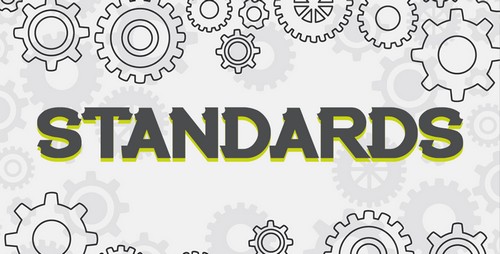Sales control ensures the productivity of the sales force and its mechanism varies from companies to companies. Control on sales force keep them alert, creative, active and make consistent them in their actions. An effective and suitable sales control system is essential for both companies as well as salespeople.
However, a sales control system should be devised with care because the too liberal or too strict system can be damaging for your sales team’s performance. you should design an appropriate controlling system only after analyzing the nature of your salespeople, the degree of cooperation, type of work, and other all relevant variables.
Keep one thing in mind that control is not for finding the faults of others or keeping them down by punishing them. On the other hand, control is necessary to keep your sales team on the right track and help them to uplift themselves. You keep an eye on the actions of the team members of your sales team and prevent them from making unnecessary mistakes and teach them to take corrective actions whenever required.
Therefore, we can say that the right definition of sales control is to analyzing and measuring the performance of sales force and comparing it with the standard performance, noticing and pointing deviation and determine its causes, and taking suitable corrective steps to tackle with different situations. Mostly time, sales volume, discipline, expenses, and activities, etc. are considered bases for analyzing and comparing performances of team members.
Table of Contents
Why sales control is important?
The control over the activities of salespersons is exercised by the manager through supervision. The annual target can only be achieved only when all activities are carried out as per plan. Following are the reasons that show why sales control is important.
i) No matter the salesman works independently or works at longer distances from the manager. In such scenarios, problems of coordination might arise with a manager or with other salesmen. Therefore, in such scenarios, control is necessary.
ii) it is important to keep the transparency of all the actions of a salesman with the manager so that negative deviations can be analyzed and corrected.
iii) it is important to direct the efforts of a salesman to maximize the profitability and ensuring maximum utilization of men and material.
iv) Customers are most valuable for every business. therefore, it is important to address the problems and complains made by customers. in this way, the positive image of the organization can be made in the market. the sales manager should direct salesmen to keep customers on top of their priority and keep them happy and satisfied.
Sales controlling process is consist of four steps. In this section, you will learn about all of them in detail.
Steps in Sales Control
1) Setting sales Force Standards
A standard is a target against which the performance of a salesperson can be measured. It can be used for comparison and usually, supervisors insist to follow the standards. It is important that the standard should be realistic and achievable. A very high standard is of no use as it will be unattainable and will only demotivate people.
Standards should be designed by keeping in mind the resources of an organization and it is important that standards must be set in numerical or measurable value. for example, 1 crore standard sales per annum, 5 lakhs standard profit per annum, or minimum 4% reduction in cost. Most of the times, it becomes difficult to put the standards in numerical terms.
For example, the quality standard for work or quality standards for managerial works, etc. it is important to specify a time limit within which standards must be achieved and standards must be kept for a short period of time.
For example, if a company has set a standard of sales of $12,00,000 per annum then sales of $1,00,000 should be set as a standard for sales every month. The advantage of having short term targets is that the issues or problems can be detected in the early phase and dealt fast.
In addition to this, standards can be revised from time to time and can be changed according to the situation. For example, in festival season such as Christmas, there are some companies which make more business than the others.
2) Measuring Actual sales Performance
once the standards are set for salespeople to follow their performance is measured on the basis of work done by them. A performance which can be measured in numbers is usually easy to measure than the other performances. However, measuring qualitative as well as quantitative performance is equally important. It should be considered ethical to achieve quantitative standards by ignoring qualitative standards.
Therefore, it is important to fix certain quality standards so that performance can be measured easily when the number of rejections sales returns increase. The performance of a manager is measured on the basis of the overall performance level of the department. It is important to measure the performance in a short period of times to get an accurate estimation.
3) Comparing actual Performance with Standards
to measure and analyze the performance of a salesperson, it is important to compare the actual performance with the standard performance. if both performances match the controlling functions cease there.
However, in the case of mismatch manager puts efforts to find out the reason behind the deviation in performance. a minor deviation in performance can be ignored, however, strict actions should be taken when there is a major deviation between both actual and standard performances.
4) Correcting Deviations and taking Follow-up actions
it is important to take all major deviations in the eyes of top management. The deviation can be divided into two categories such as critical point control and management by exception.
Methods of Controlling Sales Force
There are different types of sales force controlling methods to control the efforts of the sales force. However, these methods are not ideal for all organizations and scenarios. Applicability of a controlling method depends on criteria, areas, and different aspects used for measuring and comparing.
Followings are the widely used sales force controlling methods
1) Establishing sales Territories
Establish sales territories for the members of your sales force. In this way, they will not be competing with one another and focus entirely on their getting leads and making more and more sale. In addition to this, when the territory is well-defined to the members of the sales the chances of missing out on potential customers reduce and it also becomes easy for a salesperson to establish a relationship with customers to the future business.
2) Allocation of sales Quota
most sales driven businesses define sales quota to each of its employees before one financial year. Sales quota gives a goal to the salesperson to work on and also help the company to keep the estimation of revenue generation by the end of a financial year.
The performance of a salesperson can be measured on the basis of sales made by them. However, sales quota varies from one sales person to another salesperson as depending on the area allotted to them and products sold by them.
3) Maintaining contact with a salesperson
it is important to keep constant contact with the members of the sales of your sales team. In this way, you can keep them motivated and also can help them to solve issues that they face in cracking sales deals.
The sales person can be contacted through phone calls or by face-to-face meetings.
4) Determining authorities and rights of salespersons
it is very important to make your sales team members aware of the rights and duties they have. By being aware they can perform their job better and efficiently.
5) Salesman’s Reporting
Reporting is one of the most famous and used methods to keep track of the performances of salespeople. You should make clear how and when they should report to their subordinators.
6) Complaints and Objection Notes
it is important to keep track of complaints and objection made by both salespersons as well as customers. reacting to complaints and objections will eventually help you to improve your work and services provided by your sales team.
7) Analyzing Sales Expenses
Salespeople are usually allocated limited expenses every day so that they can reach customers without many difficulties.
However, some salespersons are known to take advantage of this facility. Therefore, expenses submitted by them should be analyzed properly before approving them.
8) Observation and visits and field trips
Managers usually stay in touch with their team members over phone and emails. However, it is important that you should go out on field trips with your team members at least once in six months.
This can help you to analyze how your team members are performing and what is their relationship with your customers. on the other hand, you will come to know about the hardships that your team members face while working in the field. This can make you more empathetic towards them.
9) Providing sufficient sales tools:
Sales tools are important for salespeople to make sales efficiently. Sales tools include material and literature like sales manual, sales literature, order forms, visiting cards, and small video clips to teach them to make sales effectively.
Liked this post? Check out the complete series on Sales




